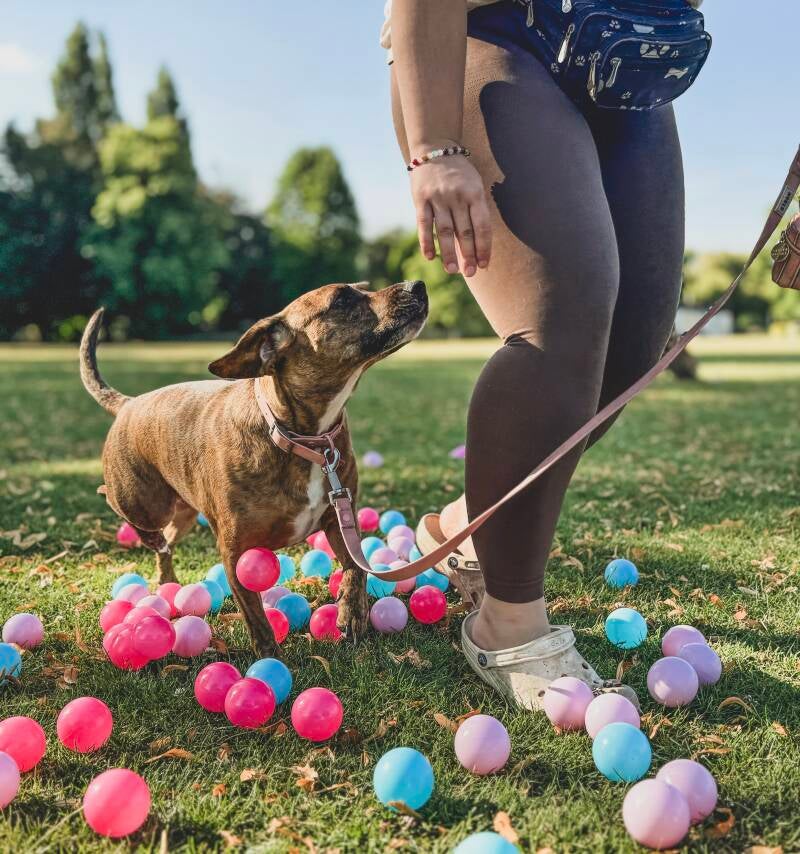
Let’s start with some honesty. Not every dog trainer and every dog owner are a good fit.
And that’s okay.
Over the years, I’ve learned that the success of any training plan depends as much on the human as it does on the dog. You can have the best methods, the perfect timing, and all the patience in the world. But if the owner isn’t truly on board, it’s never going to stick.
So yes, there are times I say no. Not because I don’t want to help, but because the foundation isn’t right yet.
Here are the kinds of clients I politely won’t work with and why.
❌ Those Looking for a Quick Fix or Effortless Results
Dogs change through consistency, communication, and calm repetition.
Training doesn’t end when the session does. It carries on at home, on walks, at the park, and in daily life. It requires time, attention, and consistent practice.
If someone comes in expecting me to “sort the dog out” in one session while they watch from the sofa, it’s a no. Training only works when the owner is just as committed as I am.
❌ Those Unwilling to Adjust Their Own Habits
Sometimes, it’s not the dog who needs to change first, it’s the human. Dogs mirror our energy, routines, and expectations. If you’re unwilling to adapt your behaviour, even in small ways, progress is limited.
❌ Those Who Want the Dog to “Just Obey”
I don’t train robots.
If the goal is to have a dog that blindly follows commands without any understanding, we’re not aligned. I want your dog to think, to understand, to make good choices because they trust you, not because they’re afraid of what happens if they don’t.
A great relationship with your dog is a partnership, not a power struggle.
❌ Those Who Don’t Genetically Fulfil Their Dog
Dogs have instincts, drives, and natural behaviours that need to be honoured. If an owner isn’t willing to meet their dog’s breed-specific or individual needs, training alone won’t solve deeper frustrations or unmet instincts.
A dachshund, for example, wasn’t bred to be a cute handbag accessory. They were bred to hunt badgers, dig, and follow scents. If owners aren’t willing to provide proper outlets and try to make their dog into something they’re not, it’s a hard no from me.
❌ Those Who Prioritise Control Over Relationship
Training isn’t about power, it’s about connection.
If your main goal is to dominate your dog or maintain rigid control, you’ll miss the chance to build trust and mutual respect, the real foundation of lasting behaviour change.
🧠 The Clients I Do Work With
Now, let’s balance it out. The clients I love working with are the ones who show up with curiosity, patience, and an open mind.
They ask questions, try things out, mess up, and then try again. They celebrate the small wins instead of only chasing the big ones. They want to understand their dog, not just control them.
Of course I don’t expect you to know everything when we start, you wouldn’t need me if you did! You don’t need to have all the answers or perfect timing. What matters most is your willingness to learn, to listen, and to keep showing up for your dog. That mindset is what creates real, lasting progress.
Those are the owners who see genuine, long term change.
🐾 The Bottom Line
As a trainer, my job isn’t just to teach dogs, it’s to teach humans how to communicate better with them.
That takes honesty, commitment, and teamwork. I’d rather work with a few dedicated owners who are invested in the process, rather than fill my calendar with those chasing shortcuts that don’t lead to lasting change.
If you’re open to learning, adapting, and meeting your dog halfway, you’re exactly the kind of person I want to work with.
Because when both ends of the lead are learning and growing together, that’s where real progress begins.
Add comment
Comments